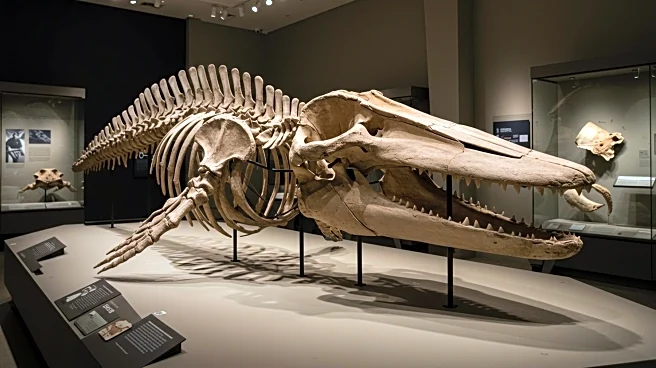What's Happening?
Paleontologists have discovered a new whale species from a 25-million-year-old fossil found on an Australian beach. Named Janjucetus dullardi, this prehistoric whale had distinctive features such as bulging eyes and razor-sharp teeth. The discovery was made by Ross Dullard, an amateur fossil hunter, who found the partial skull on Jan Juc Beach. The species is part of the mammalodontids group, early whales that lived during the Oligocene Epoch. This discovery provides insights into the evolution of whales, particularly how ancient cetacean species adapted to their environments.
Why It's Important?
The identification of Janjucetus dullardi is significant for understanding whale evolution. It offers clues about how early whales transitioned from land to sea and adapted to marine life. This discovery can help scientists understand how ancient species responded to environmental changes, which is crucial in the context of current climate change. The research contributes to the broader knowledge of cetacean evolution and their adaptation strategies, potentially informing conservation efforts for modern marine species.
What's Next?
Further research may focus on uncovering more fossils to provide a complete picture of Janjucetus dullardi's anatomy and lifestyle. Scientists aim to explore how these early whales interacted with their environment and what led to their evolutionary success. The findings could influence studies on how current marine species might adapt to changing ocean conditions due to climate change.
Beyond the Headlines
The discovery highlights the importance of amateur fossil hunters in contributing to scientific knowledge. It also underscores the role of specific geographic locations, like Jan Juc Beach, in preserving ancient marine life fossils. This could lead to increased interest and funding for paleontological research in such areas.









